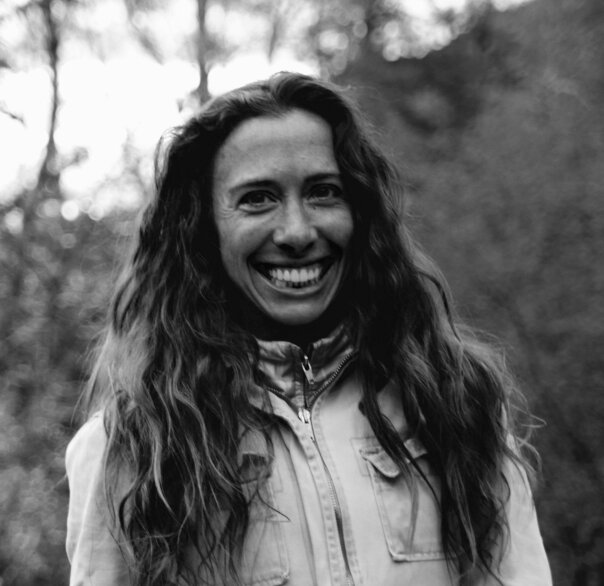Transcending Box-ticking by Listening to Auditors
In 2014 I founded &Wider, a mobile engagement company which gathers insights from workers about their working lives via mobile phone and helps others to use this insight to drive improvements.
We work in the field of “responsible sourcing”. How, to date, have we all tried to carry out this responsibility?
It works like any compliance system: you have agents who test compliance, a report which tells suppliers whether or not they have passed the test, and what they may need to do to pass it.
This is the model used by police, and traffic officers. Responsible sourcing is currently dominated by a policing framework, where compliance is required and non-compliance is penalised.
Has this policing system worked in driving improved working lives for workers?
I believe we are all clear that change is needed, and that this approach has under-delivered for workers, for suppliers and for the auditors who have historically been its “face” on the farms, factory floors and pack-houses.
Why has it under-delivered, can we fix auditing, and if so how? These are crucial questions that new organisations like APSCA and others in the audit industry have emerged to answer.
We hope to shift the focus here away from policing suppliers or indeed auditors, and away from demanding a move beyond compliance. Instead here we consider the vantage point of auditors and their role in contributing to evaluating, improving and perhaps even replacing this compliance-only approach.
After all, if we are interested in hearing from workers, surely auditors qualify as our workers in the global workplace of responsible sourcing?
So it is here that I step aside, and defer to my friend, who’s worn the hats of the auditor, the sourcing agent and the strategic consultant, Greta Matos. Her heartfelt contribution is written on the back of her experience working for more than a decade in this sector, always strongly motivated by a desire to enable workplaces and supply chains that respect all those who work within them.
Getting to the heart of it
In the early days of my career, I lived in Hong Kong, working as a Manufacturing Manager. I spent much of my time working in China, building relationships, negotiating contracts, performing pre-audits and overseeing production.
When I was taken to new factories for pre-production site visits, I commonly witnessed underage workers, toxic chemical exposure, locked production doors and depressing dorm conditions. Each time I walked those factory floors I felt this sense of heartbreak, in realizing such conditions were so often the status quo; and even though I could say “no”, and place our production elsewhere, these factories were still operating at full capacity. Even if I cared, there were plenty of others who didn’t.
Time and time again I was witness to the realities of these workers – realities that I felt helpless to change.
Corporate strategy very often lifts us out of our basic humanness.
As I moved beyond the sourcing side of the business, into the dynamic world of social compliance and responsible sourcing, my understanding of these challenges deepened, as did my awareness of this collective heartbreak occurring at every human layer of our global supply chains. I stepped into a world immersed with people who did genuinely care, and were working day in and day out to contribute to these changes that felt so impossible in my early career.
And yet, knowledge of so many problems in the world, the vastness and complexity of those problems, and the slow pace of progress- it can weigh heavily at times.
From corporate executives to farm supervisors, to auditors themselves, I’ve held these conversations of shared grief and heartbreak that is often invoked by audit results. These conversations are usually subtle and quiet, they live outside of the audit reports, and sometimes are held entirely within a moment of eye contact and a heavy sigh. Social compliance audits, while meant to be a highly systematic process for information gathering, are still founded on the basis of human connection.
Corporate strategy very often lifts us out of our basic humanness. As we craft systems and standards and protocols, creating KPIs, reports and spreadsheets, we lean entirely on our strategic thinking; and what often gets left behind- by the wayside- is our hearts.
It is our hearts that have driven us to care for one another in the first place. In this moment in time, this moment of reckoning, it is essential that we bring our hearts back into our boardrooms, back into our audits, back into our compliance strategy- and especially into our “beyond compliance” imagination.
To do so, we must begin by acknowledging the heartbreak that lives within this field of responsible sourcing- this work that we all do, and take pause for a moment.
How many times in your own career has your work broken your heart?
Imagine the number of times an auditor’s heart is broken in the scope of his career. How many children has she found working in dire conditions, whose family desperately needed the added income? How many men and women has he felt a sense of fear from, but could do nothing to help? How many subtle forms of abuse has she discovered and uncovered in her work of gathering data and completing checklists?
How do we support the wellbeing of the auditors in our midst, present and future?
Auditors bear witness to complex issues day in and day out, issues that they themselves have no control to actually change. They share a human experience with the workers that these standards and compliance initiatives are meant to protect, yet they cannot ensure protection. Most often they are not empowered to change the abuses they witness.
This is a humbling place to be.
It’s often a difficult place in which to remain whole, to remain wholehearted, in your work and in your life. Within the context of most compliance programs that operate today, we continuously ask our auditors to turn away from their hearts. How then can we then be surprised when they cannot do this work wholeheartedly?
How do we support the wellbeing of the auditors in our midst, present and future, and enable them to participate in the possibility of positive change in the workplaces- the hopes of which brought them into this work in the first place?
Our collective human impact stretches far beyond what our minds are capable of grasping. It’s going to take a hell of a lot of creativity, grit, dedication, and heart to build an economy that is good for all. We’ve already gathered so much in terms of data, in terms of procedure and systems. Auditors play an essential role in all of this, and it’s time to listen to what they can offer that goes beyond compliance.
So, let’s enquire how they see themselves in this evolving landscape, inviting their hearts into this conversation, so that we might finally imagine a way forward that celebrates and rewards accountability- from origin to end of life.
A listening project
We have started here with asserting our shared desire for enabling better workplaces and more satisfying and better valued working lives for auditors themselves.
So, with this piece we wish to initiate a listening exercise, and provide an opportunity in the blog entries that follow to listen to auditors. In the coming months we commit to harnessing both their sectoral knowledge and their frustration with the existing compliance-based approach, to share auditors’ insights and suggestions from interviews we will have conducted.
Please come back, read more and participate if you wish.




